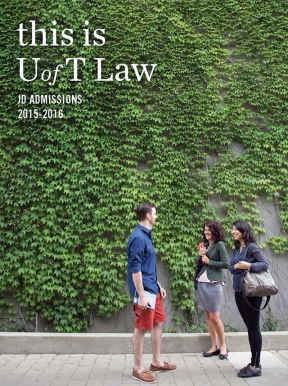This commentary was first published in the Financial Post on November 4, 2008.
Last August, 4,500 Zoom Airlines passengers found themselves stranded across North America, the West Indies and various European countries when the airline ran out of money and grounded its planes. Passengers were left to pay for their return journey home and figure out how to recover the payments they had made to the airline. Their prospects were dim.
Since Zoom Airlines had declared bankruptcy, the best the passengers could expect was to be treated as unsecured creditors of the airline-- ranking at the bottom of the ladder in the distribution of Zoom's assets. Passengers must yield to the prior claims of Crown trust claims (for unremitted employment insurance premiums and tax deductions), secured creditors and preferential creditors. Typically, unsecured creditors recover no more than five cents on the dollar of their claims and often nothing at all.

 Get the inside scoop on applying to our JD program directly from the Faculty of Law Admissions Office and hear from current law students.
Get the inside scoop on applying to our JD program directly from the Faculty of Law Admissions Office and hear from current law students. 